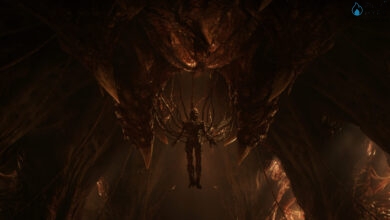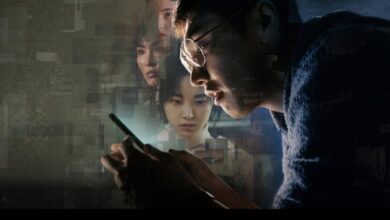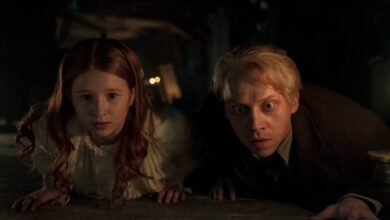The Last of Us Episode 1 Review: Perfect Opening for One of The Most Anticipated Series Of The Year
Cast: Pedro Pascal, Gabriel Luna, Nico Parker, Anna Torv, Bella Ramsey
Director: Craig Mazin
Streaming Platform: HBO Max
Filmyhype.com Rations: 4.5/5 (four and a half stars)
Leaving behind months of speculation and agonizing anticipation, HBO’s adaptation of The Last of Us is now ready to make its mark. The masterpiece that consecrated Naughty Dog and revolutionized the gaming industry back in 2013, therefore, reaches another medium 10 years after its official debut and does so with a series full of ambitions for all the figures involved. On the one hand, the creator of the saga, Neil Druckmann, got the much-needed opportunity to tell his story to the general public with the support of an expert like Craig Mazin (already award-winning showrunner behind Chornobyl); on the other, the same network hopes to excel in the current television season with its new bet.
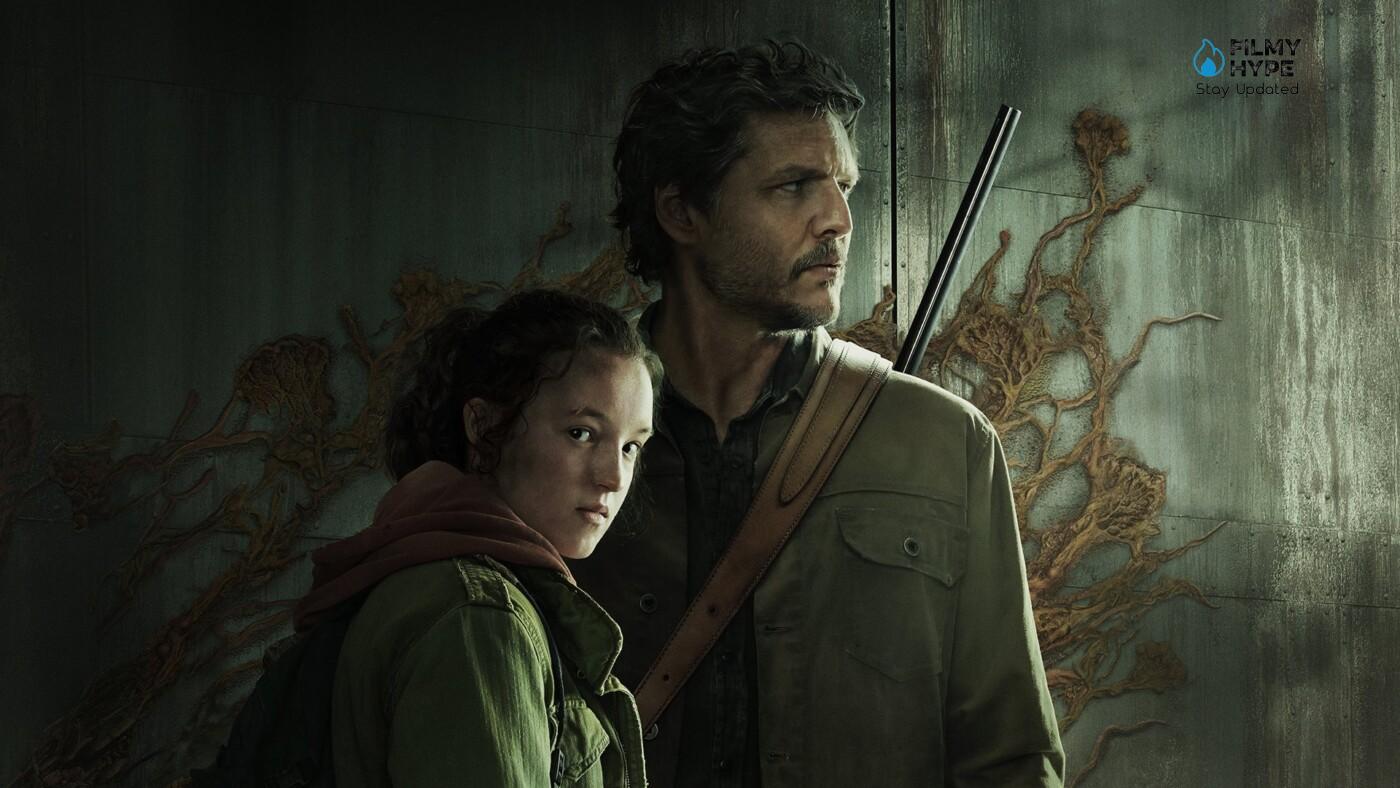
After initially shocking many critics for its majesty, The Last of Us has broken record after record even before the official debut and is now preparing to welcome the judgment of viewers and long-time fans. As mentioned in our review of The Last of Us TV series, there seem to be very few shortcomings or flaws standing in the way of the show’s rise as one of the year’s top productions. However, the weekly cadence of the series exclusively on HBO Max allows us to observe in detail the work carried out by Druckmann and Mazin from episode to episode, to thoroughly analyze the merits and possible flaws of what is shaping up to all intents and purposes as an unexpected undertaking.
The Last of Us Episode 1 Review: The Story Plot
That The Last of Us series wanted to stay as faithful as possible to the source material was clear from the very first promotional images: after all, the presence of Druckmann as executive producer, writer and occasionally even director left little room for doubt. Yet, right in the opening bars of his debut, it becomes clear that the author’s and HBO’s approach is aimed at providing greater context and greater depth to every single element presented in the show. Starting from a divergence from the original work, however, decided by greater realism in dealing with the development of a global epidemic, the classic premises of a post-apocalyptic show quickly move away from any stereotype by introducing Joel Miller (Pedro Pascal) and their daughter Sarah (Nico Parker). The story of this small family from Austin, Texas is here an emblematic and brutal example of an unexpected and seemingly unstoppable tragedy that shook the planet in 2003.
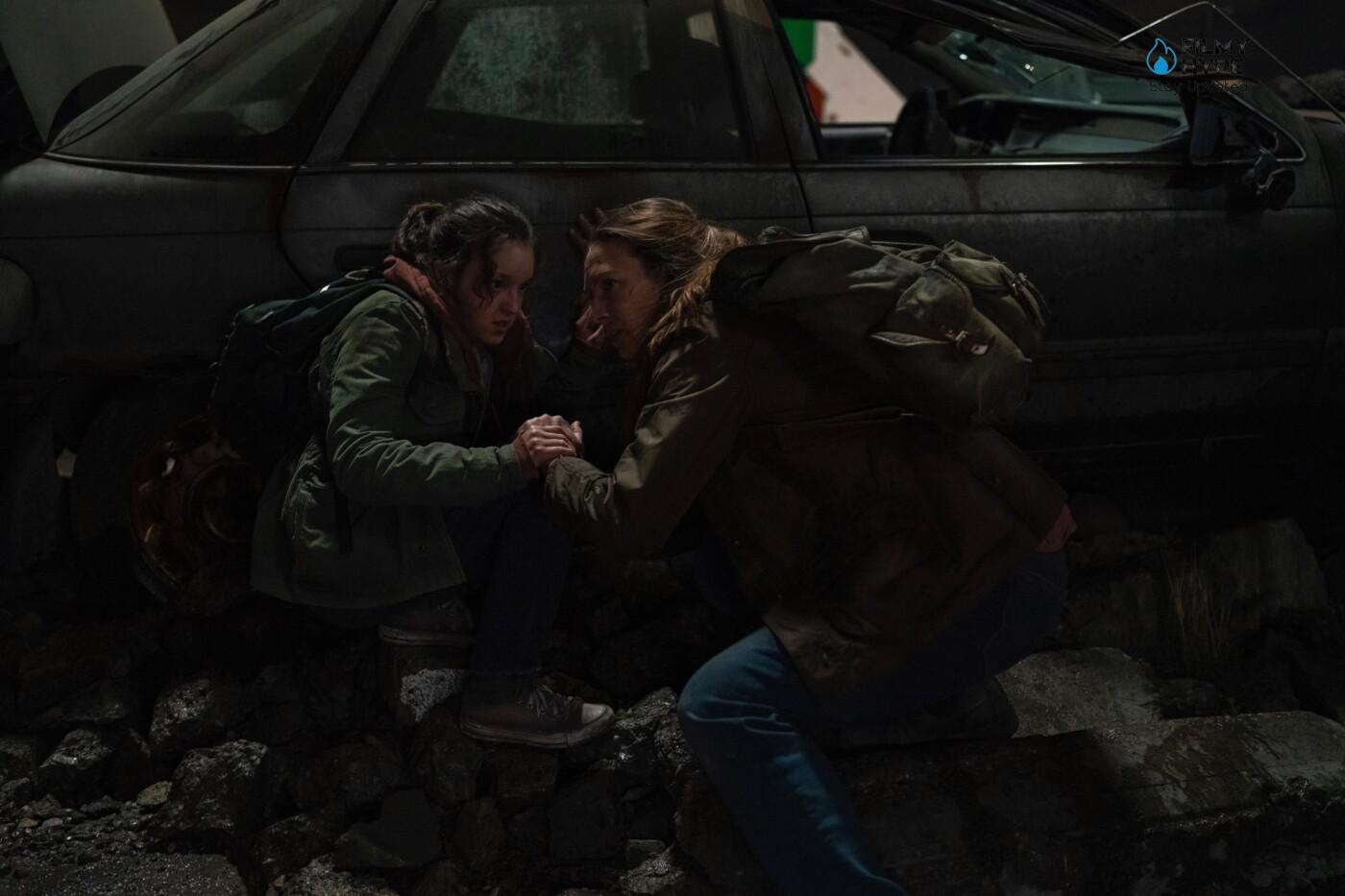
After an initial narrative adagio, typical of that style of pursuit that observes and scrutinizes the characters in their daily lives, carving their image in the viewer’s mind, the second part of the prologue unleashes all its chaos and overwhelms the observer amidst moments of terror and fragments of tragedy. Heart-pounding sequences follow each other non-stop in a first episode that borders on a feature film (with a duration of almost 90 minutes) and demonstrates an incredible fidelity to the heart of the original work. With the uncontrolled proliferation of the Cordyceps fungus, humans have turned into infected beasts and the world’s population has been decimated. 20 years after that trauma, the protagonists of the events find themselves in a completely different world in which the federal government controls public order and a group of reactionaries intends to move in the shadows in the hope of finding a way out of the nightmare. Here Ellie (Bella Ramsey) is introduced, a girl who unknowingly will be at the center of an intrigue and a mission that could overturn the fate of humanity destined for oblivion.
The Last of Us Episode 1 Review and Analysis
Focusing on style, aesthetics and atmospheric rendering, the introduction of The Last of Us would seem to be much closer to the cinematic environment than to the television one: Mazin’s wise direction waits for the characters to take their time, observes them closely and penetrates their minds with extreme care while sequences that are very similar to the first moments of the video game alternate on the screen. The reference to Chernobyl, seasoned with the magnificent music of Gustavo Santaolalla, here acquires a different flavor in the pseudo-historical treatment of a phenomenon and soon begins to alternate hand in glove with the life of the characters. In this sense, the attention given to the explanation of the epidemic and of the phenomena acquires an almost primary role, reserving more space for surrounding faces than initially expected.
This will certainly not surprise those who know Mazin, an author obsessed with the concept of truth and with the realistic treatment of unexplained phenomena. It all lines up perfectly with HBO’s style, who then takes the opportunity to flex his muscles while telling a great American story. Between carefully studied close-ups and never-banal silences, the showrunner’s gaze constantly alternates his attention between several elements, keeping the pace on very high peaks after the first twenty minutes up to the climax in which he also delights in interesting camera movements and exercises style – a long shot, in particular, catapults the viewer into the heart of the action and creates the perfect pathos for the subsequent twists. What Mazin and Druckmann’s show probably does best is the idealistic exploration of the concept of community (or at least of unity between characters) in times of turmoil: like the original work, revolutionary in throwing the player headlong into a world of horror without focusing its attention on the simple struggle between survivors and mutated, the series also offers a bewildering perspective, but deeply human in telling the weight of every choice.
The result is a mood more similar to the works of Damon Lindelof, where Lost is not about the mind, but the heart and where Leftovers are not looking for answers, but for unity in the face of the unimaginable. This perspective distances (and elevates) the work compared to products such as The Walking Dead, granting a more impactful dimension to the characters and events narrated, albeit consciously simple in their interweaving. The experience of The Last of Us is therefore not horrific, but cathartic, and lets the turmoil that the two authors intend to tell shine through in every scene. The plot thus proceeds flawlessly, with Mazin narrating the decadence and Druckmann introducing, looking after, deepening, and, in some cases, improving his characters.
It’s amazing how each scene acquires even more pathos than the reference counterpart. The weight of the author is felt in the making phase, but that of the actors gives completely new power to the amalgam. Where the video game was forced to limit itself, the series is pressing scenarios and dialogues often follow the original work, but the show’s perspective is broader. Occasionally moving away from the leading faces, any character gets more space to show himself to the public in the flesh without ever appearing marginal for the story. The choices of the cast appear decidedly spot on even in the initially more dubious roles and may reserve more than a few surprises throughout the various episodes. The acting of the HBO show travels on very high levels, starting from the youngest faces up to the more elderly ones.
Specifically, in this first episode, Nico Parker manages to steal the show and allows the viewer to observe the evolution of Pedro Pascal’s Joel, who immediately appeared in part in embracing a particularly gray character (especially in this introductory phase). Bella Ramsey doesn’t get much screen time compared to her peers, but he immediately shows the quality of his work by stepping into the shoes of a character so loved by fans to demonstrate his value to everyone. For now, the mission is accomplished, despite some slight inflections in its adaptation to American pronunciation. The protagonists take their time before showing themselves together, but the choral deepening of the faces around Joel and Ellie can only satisfy long-time fans, while captivating fans of the last hour.
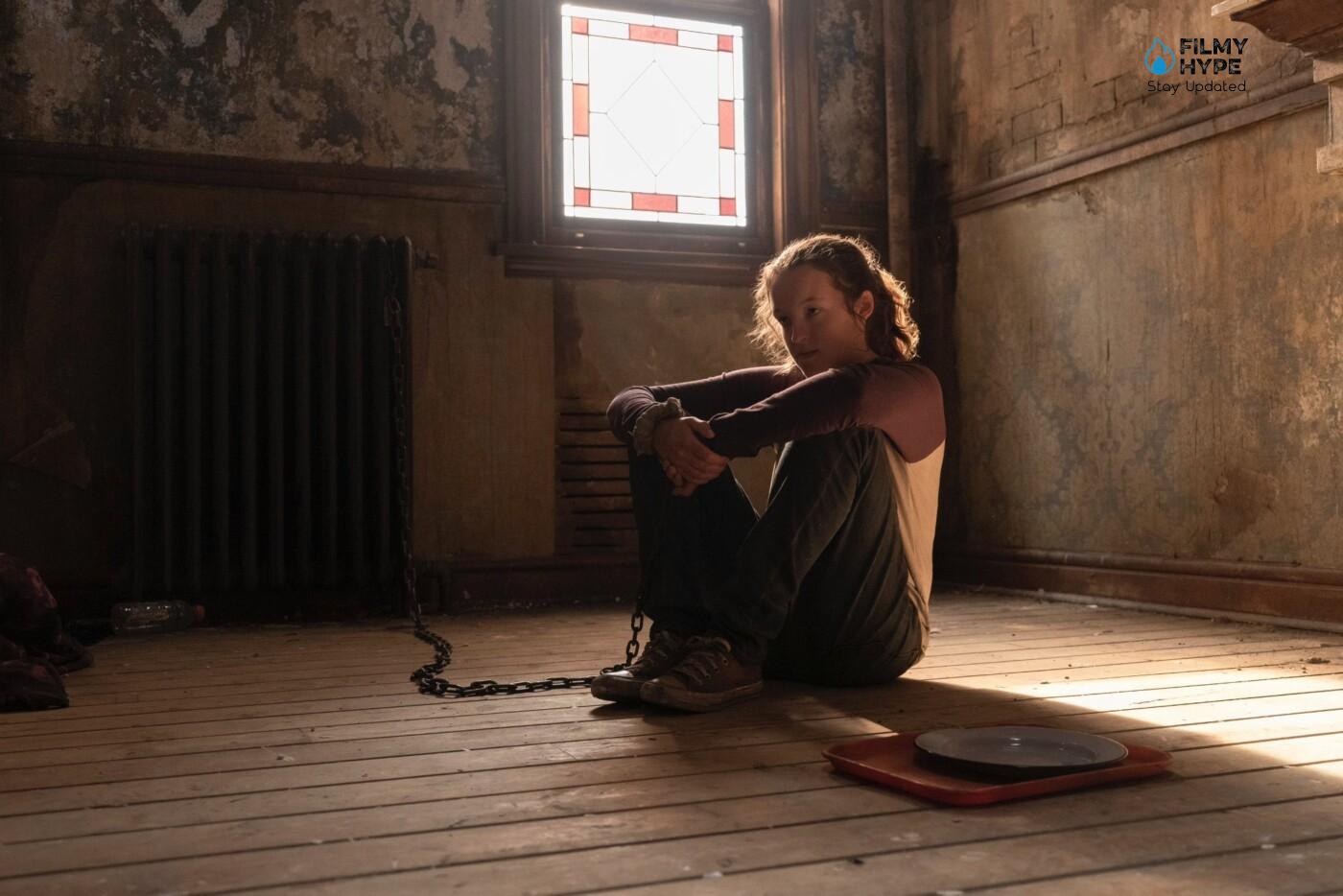
Thus, focusing on a style aimed more at introspection than spectacularity (despite some breathtaking sequences), The Last of Us distances itself from the tight action in favor of a dynamic dramatization that poetically caresses the pain. Net of this, it is not at all an exaggeration to say that in terms of atmospheres, scenarios and aesthetics we are faced with the most satisfying videogame-themed adaptation, with every area of production faithful and functional to the message of the work. To reduce the importance of The Last of Us, as a work even before an adaptation, to a simple operation dictated by marketing would be devilishly simplistic. In 2023, 10 years after the discovery of a story that marked an era, the idea of challenging the canons and language of videogame transpositions with such certainty is an effort that will make school. In an industry where the trend sees the anarchy of the writing room prevails over respect for original ideas, HBO once again demonstrates the enormous weight of an author alongside his creature.
Druckmann’s guide places the series in an additional, ameliorative and non-revolutionary perspective for the simple sake of emerging. Passion and love for opera make all the difference in the world, beyond aesthetic obsessions or sensationalism of any kind. As it moves between corridors and twists and turns, The Last of Us begins in the best possible way, not because it is revolutionary per se, but because it combines coherence and authorial professionalism with the empathy and care of a “father” for his creature. This is an example that, in these weeks of viewing, will inevitably lead the competition to face a comparison that is no longer able to hold up.
The Last of Us Episode 1 Review: The Last Words
The first episode of The Last of Us is the perfect opening for one of the most anticipated series of the year. Capable of effectively delineating the world we find ourselves in, and the complex psychology of his characters, he has already captivated us. With an exemplary introduction, HBO’s The Last of Us series demonstrates not only that there is a future for game-themed adaptations, but that the medium can aspire to tell stories of universal reach. The joint effort of Craig Mazin and Neil Druckmann gives life to a qualitatively worthy pearl and in many ways an improvement on the original work, driven by a deep love for their characters and by an authorial mastery that will not leave us indifferent in the weeks to come.



